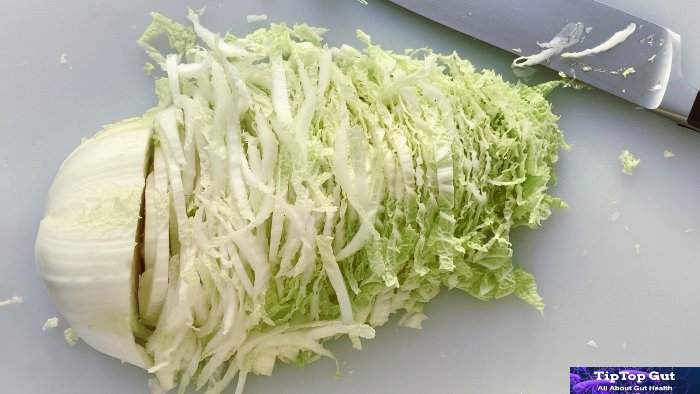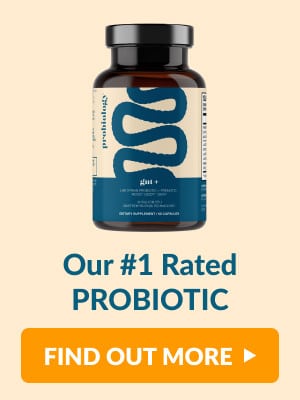What is Sauerkraut?
Sauerkraut is a term that roughly translates to “sour cabbage” it is fermented cabbage infused with spices and salt, giving it a slightly sour flavor. It is a well-loved dish in Germany and other European countries, yet its roots are rooted in China. Sauerkraut is served as a side dish or condiment for hot sausages or hot dogs.
Sauerkraut is made of fresh cabbage that is then fermented in salt brine over several months.
The yeast cells and bacteria that naturally occur in organically-produced cabbages will break down the carbohydrates within the cabbage and produce lactic acid in the fermentation stage. The process of fermentation is similar to the operation of pickles or kimchi. It is not recommended to use heat because it eliminates the bacteria, which allows the process of fermentation to take place.
The fermented cabbage has lactic acid produced by the fermentation process and has a bitter taste. It is a trendy probiotic food rich in lactic acid, tyramine vitamins, and minerals. So, what is the best time to eat sauerkraut for gut health?
Does All Sauerkraut Count As A Probiotic?
Yes and No. A probiotic’s official description is “Live microorganisms when administered in sufficient quantities, confer benefits to the person receiving it.’
To determine an adequate amount, it is necessary to be aware of the number of beneficial bacteria in the food item. This is simple to gauge in supplements but complex when found in fermented food items.
We know that Sauerkraut is a source of beneficial bacteria. However, it isn’t easy to classify the kinds or even the numbers. This is because they differ depending on the composition, age, and how long the storage is for Sauerkraut.
Therefore, technically speaking, Sauerkraut isn’t a “probiotic” because we don’t know an adequate amount like other probiotics. Sauerkraut is better described as”a food source of active and live culture’; however, “probiotic food” is acceptable too.
What Amount of Sauerkraut Do I Need Each Day?
If you’re thinking, “how much sauerkraut can I consume daily?” The answer is around one tablespoon of Sauerkraut every day. However, remember that consuming a portion you feel comfortable with and like is essential. It’s all about consistency.
Suppose you’re beginning to get used to fermented and sauerkraut-based foods in general. In that case, you should start gradually to avoid frequent side effects from Sauerkraut, such as stomach upset, gas, diarrhea, and gastric bloating. When your digestive system is used to eating Sauerkraut, you can increase the amount. I strongly suggest making it a regular component of your daily diet.
Some Excellent Ways to Include Sauerkraut in Your Diet
Raw Sauerkraut introduces billions of probiotics to the digestive system, triggering an essential change in the gut microbiome that can alter how water is absorbed by the large intestine, causing diarrhea. If you are experiencing diarrhea, stomach upset, and nausea, you should reduce the quantity. Start with just one teaspoon per day or every other day, and gradually work to a higher dose from there.

What is the Best Time to Eat Sauerkraut?
The best time to eat Sauerkraut is in the early morning.
Sauerkraut is a fermented food recommended to consume early in the day, around one teaspoon to 10 grams daily. Sauerkraut is a highly healthy, probiotic-rich food, and it is recommended that you drink about a tablespoon or 10 grams daily.
To reap the benefits of Sauerkraut, you should consume about one tablespoon per day. This can be accomplished by adding a small amount to your plate when you eat dinner. 1 This can aid digestion and avoid constipation.
Why Should I Consume Sauerkraut Daily?
You have it right. If you’re not familiar with eating Sauerkraut, it can cause diarrhea. However, If you’re already familiar with strongly suggest making it a regular component of your daily diet. Sauerkraut may help in the prevention of it.
The good bacteria produced by fermentation allows your body to digest food more efficiently and allow your digestive system to absorb minerals and vitamins completely.
What do you think of probiotic drinks like kefir beet kvass and kombucha? They’re also a good source of good gut bacteria. Begin slowly, and then work to increase your intake.
Through fermentation, the Sauerkraut is a source of nutrients and health benefits that go far over the advantages of freshly harvested cabbage. 2
Health Benefits of Sauerkraut
- Strong Bones
- Strong Immune System
- Heart health
- The rich content of Vitamin C
- Good range of Vitamin K
- Reduces Stress
- Promotes Healthy Skin
- Lower Blood Pressure
- Lower Cholesterol Levels
Sauerkraut offers a variety of nutritional components for optimal health. With a low-calorie content and none of the fat, the Sauerkraut has other advantages that make it a significant part of your diet. These include:
- Potassium
- Copper
- Vitamin B6
- Magnesium
- Iron
- Vitamin K
- Vitamin C
- Sodium
- Protein
- High content of Dietary Fiber
Probiotics are beneficial bacteria that protect your body from harmful bacteria, toxins, and other types. The healthy bacteria communicate with the brain and have been shown to enhance memory and decrease symptoms of anxiety and the symptoms of depression.
The medical community has confirmed. Sauerkraut boosts your immune system. Making your gut more balanced ensures a healthy gut lining in harmony with an immune system that is healthy and allows the creation of natural antibodies that provide your body safety and security.
Include Sauerkraut in your diet following the administration of medicine, such as antibiotics, which can help to rebalance your digestive system and help prevent stomach irritation. Sauerkraut can be used in small quantities to provide protection and healing benefits. It has also been suggested as a probiotic-rich food for treating illness.
Sauerkraut’s high fiber content makes you feel fuller for more extended periods and helps you lose weight by reducing the calories you eat daily.
Suppose you’re mindful of your diet or weight loss, Sauerkraut’s low-calorie diet. If that’s the situation, a high-fiber diet can help you feel fuller longer and allow you to cut down on the calories you consume every day as a weight loss aid. Including Sauerkraut in your diet is recommended as a supplement to your food plan, not as a substitute or substitute. Be sure to discuss any changes to your lifestyle or diet with your physician and seek nutrition advice before making any adjustments.
Read More:
What Nuts are Good for Gut Health? Delicious Nuts 2022
Salt Content in Sauerkraut
Sauerkraut is well-known for being high in salt, so should you wish to stay away from too much sodium, I suggest giving it an easy rinse before eating it. It will remove some salt and beneficial probiotics, but not all of them. It is recommended to speak with your physician before changing your diet.
Sauerkraut is vegan and gluten-free and has every health benefit we’ve discovered. Perhaps you’re in search of similar ferments that are similar to Sauerkraut. Consider the sour cabbage of Romania, Brevard from northern Italy, and Curtido in El Salvador, and of course, If you ever visit Germany, Be sure to taste their Sauerkraut because Sauerkraut is among Germany’s most popular foods!
If we’ve stimulated your interest in nutritious, healthy Sauerkraut, why not test it yourself? We suggest Bubbies Sauerkraut, Hamptons Brine, Farmhouse Culture Kraut, and Olive My Pickle. For a taste of the variety of health benefits that are eating Sauerkraut daily provides.
Frequently Asked Questions about Sauerkraut and Gut Health
Is it good to eat Sauerkraut at the beginning of the day?
Take a couple of forkfuls of Sauerkraut at the beginning of the week. Take a couple of fermented carrot sticks or pickles for an afternoon snack. Drink water kefir rich in probiotics or kombucha for a quick pick-me-up in the middle of the day. Include milk kefir in the morning smoothie to give it an extra boost of probiotics.
What is the most healthy method to consume Sauerkraut?
If you’d like to take advantage of the benefits of natural fermented Sauerkraut, make sure you don’t ruin the beneficial probiotics and enzymes by heating it. It’s acceptable to mix Sauerkraut in warm soup or sprinkle it on top of your meals.
How do you react when consuming Sauerkraut every day?
Consuming Sauerkraut can help improve immunity, boost your body’s digestion, decrease your chance of contracting certain diseases, and even help you shed weight. To reap the most benefits, you can try eating a portion of Sauerkraut daily.
Can I Overeat Sauerkraut?
Your body will inform you that you’ve eaten too excessive Sauerkraut. Consuming large quantities of any fermented food could cause diarrhea, flatulence, and bloating due to the small intestine’s inability to reduce it. While it can be uncomfortable for a short time, it does not have lasting effects on your body as a person or your system.
Sauerkraut contains a significant sodium content, so you should be conscious of how much you add to your daily eating habits.
What kind of Sauerkraut is best for your stomach?
The majority of canned Sauerkraut is pasteurized, which kills the beneficial bacteria. Get fresh Sauerkraut (made with vinegar) to reap the benefits for health.
How many servings of Sauerkraut should I consume every day to get probiotics?
How much Sauerkraut Do I need to consume for Probiotics? Taking a minimum of 10 grams of Sauerkraut is recommended to get the most excellent probiotic benefits.
How much Sauerkraut Do I need to consume for Probiotics?
Taking a minimum of 10 grams of Sauerkraut is recommended to get the most excellent probiotic benefits.
How do you prepare Sauerkraut? Procedure?
You can lift your lid and “burp” your fermentation daily. You may also press the cabbage until it is submerged within the beverage. Be sure to use a clean, sterile utensil to do this, not to bring in any bugs which could ruin your ferment. After a few days, you can smell bubbles and a sweet but sour scent.
Does Sauerkraut from the grocery store contain probiotics?
However, Sauerkraut from the grocery store displayed on shelves like this is usually pasteurized, which means the bacteria aren’t active and, therefore, there aren’t any probiotics.
What happens when you consume too excessive Sauerkraut?
Sauerkraut is a fantastic source of fiber in the diet. However, if you’re familiar with a diet high in fiber and fermented food, overeating in a short period could cause adverse effects such as cramping, diarrhea, and constipation.
How often do you need to eat fermented foods for good gut health?
Kirkpatrick states that people who consume only one portion a day tend to have better gut bacteria. Zanini spokeswoman from the American Academy of Nutrition and Dietetics, typically suggests between two and three pieces of fermented food per day.
Do you prefer to eat Sauerkraut cold or hot?
Sauerkraut can be consumed hot or cold. Although it is typically served hot along with pork dishes, it’s also a famous Hot Dog topping across America and is often utilized in sandwiches in delis like Reubens. It is available fresh, canned, or jarred in bags in the chiller aisles of specific grocery stores and cafes.
Can Sauerkraut replace probiotics?
Researchers tested 2-tablespoon 1/2-cup and 1-cup portions of Sauerkraut. They found that the tiniest 2-tablespoon piece in Sauerkraut was a whopping 1 million colony-forming units (or CFUs), which is enough to supply you with the probiotics you require throughout the day.
Read More:
Probiology Gut+ Reviews: SCAM or Legit Probiotic Supplement in 2022?

















